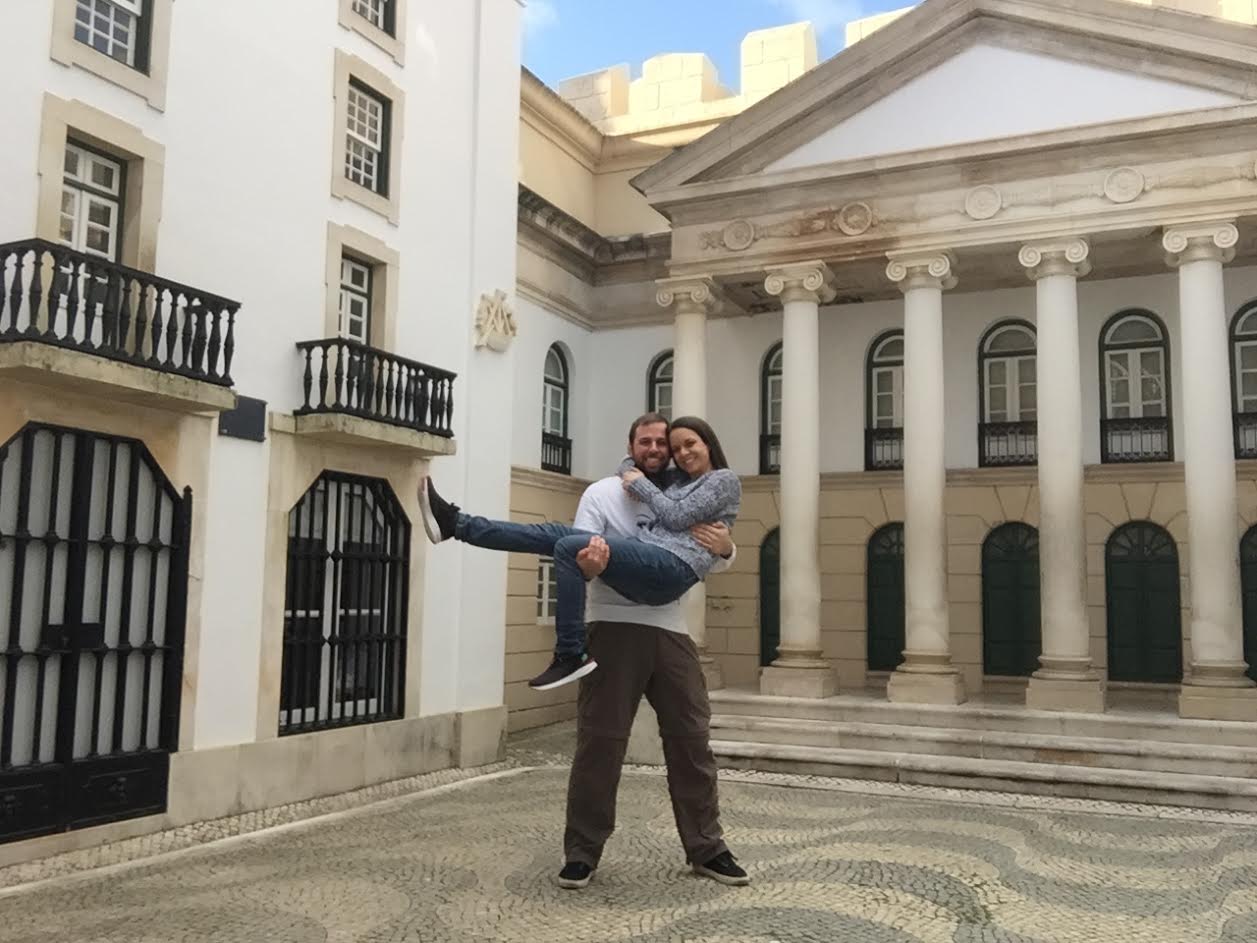Digital Nomad Life in Croatia: Mike and Tara Shubbuck from Washington DC to Zagreb
April 5, 2020- As the number of digital nomads rises globally, some are choosing to spend some of their time in Croatia. Continuing our TCN series meeting international digital nomads calling Croatia their temporary home. Meet Mike and Tara Shubbuck from Washingon DC but now in Zagreb.
As recently featured on TCN, the world is projected to have a billion digital nomads by 2035, people from all over the world doing all manner of jobs and business with one thing in common - a flexible, mobile workplace connected to the Internet. If even a fracture of that number becomes a reality, the economic opportunity for countries which can attract these wealth-generating individuals has the potential to dwarf Croatia's current tourism revenues. And there are few countries better placed than Croatia to take advantage. Safe, beautiful, great gourmet scene, top tourist destination, English is widely spoken, well connected to other destinations, and a superb lifestyle.
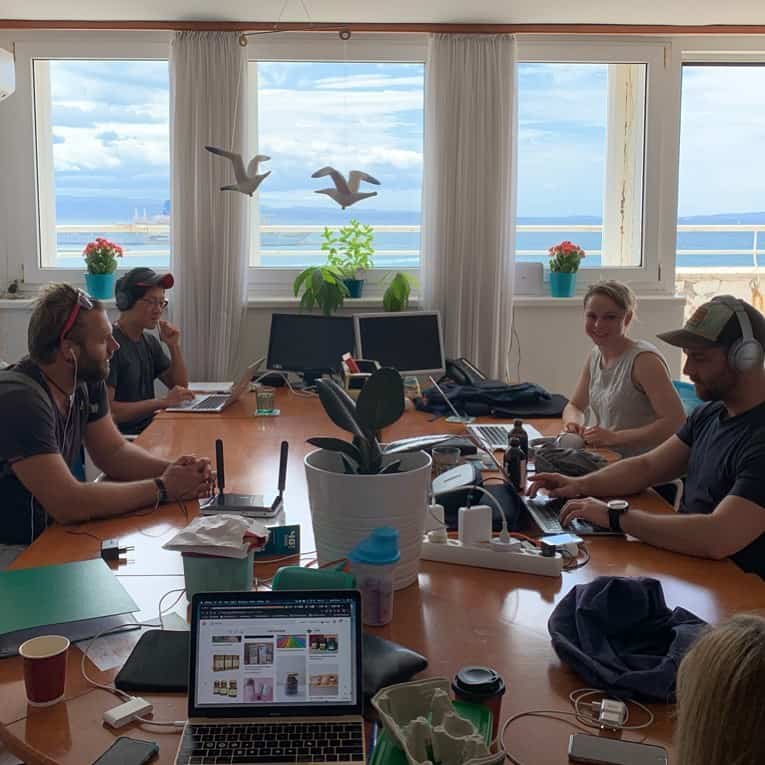
In order to look at the issue in more detail, we have decided to look at some of the digital nomads who have Croatia in their lifestyle plan, and to find out why Croatia, what Croatia offers, and what are the things that countries should be looking out for to take advantage of this economic opportunity. I am very grateful to Tanja Polegubic from Split's waterfront co-working space, Saltwater in Split (see location below) for her help in connecting me to various digital nomads using her space.
Our next digital nomads in Croatia are Tara Shubbuck and partner Mike, currently in Zagreb, a long way from home in Washingon DC.
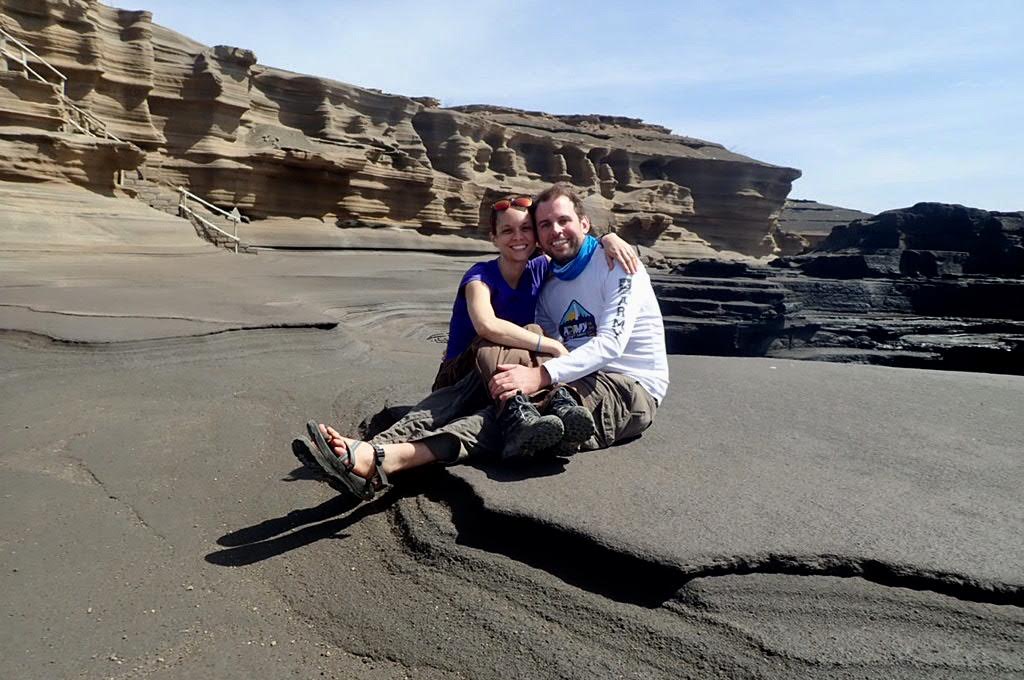
You are one of a growing number of digital nomads. Tell us briefly who you are and what you do.
We’re Tara and Mike, a married couple in our thirties from Washington, DC. At the end of 2019, we split off from our location-dependent jobs to pursue a fully remote lifestyle. Over the past four years, Tara created a side business doing writing work mostly for Skyscanner and The Washington Post (https://tarashubbuck.com). Once the frequency of projects reached a sustainable level, we decided that 2019 was the right time to start that transition to become digital nomads. We ended 2019 with Tara leaving her full-time marketing job to focus on her freelance work, while Mike transitioned to being a fully remote technical writer and trainer.
Working from your laptop rather than in an office seems like the dream lifestyle. What are the main pros and cons?
We’re still new to the digital nomad lifestyle, but one thing that has been really nice is living in a time zone ahead of those we work with. We’re more night owls than early birds, so we tend to stay up later anyway. This frees up the morning for personal activities, and then by lunchtime, those we work with are starting to sign online for the day.
Another major perk of this lifestyle (prior to the coronavirus pandemic lockdown!) is that you are, in a way, always on vacation. You can move whenever you want a change of scenery, and what you pay for housing, food, etc. are your standard costs of living, not additional expenses like those you would incur when you take a vacation away from your permanent residence. And because of that, we can select destinations that have a lower cost of living compared to the United States, and particularly DC, where rent and activities are expensive.
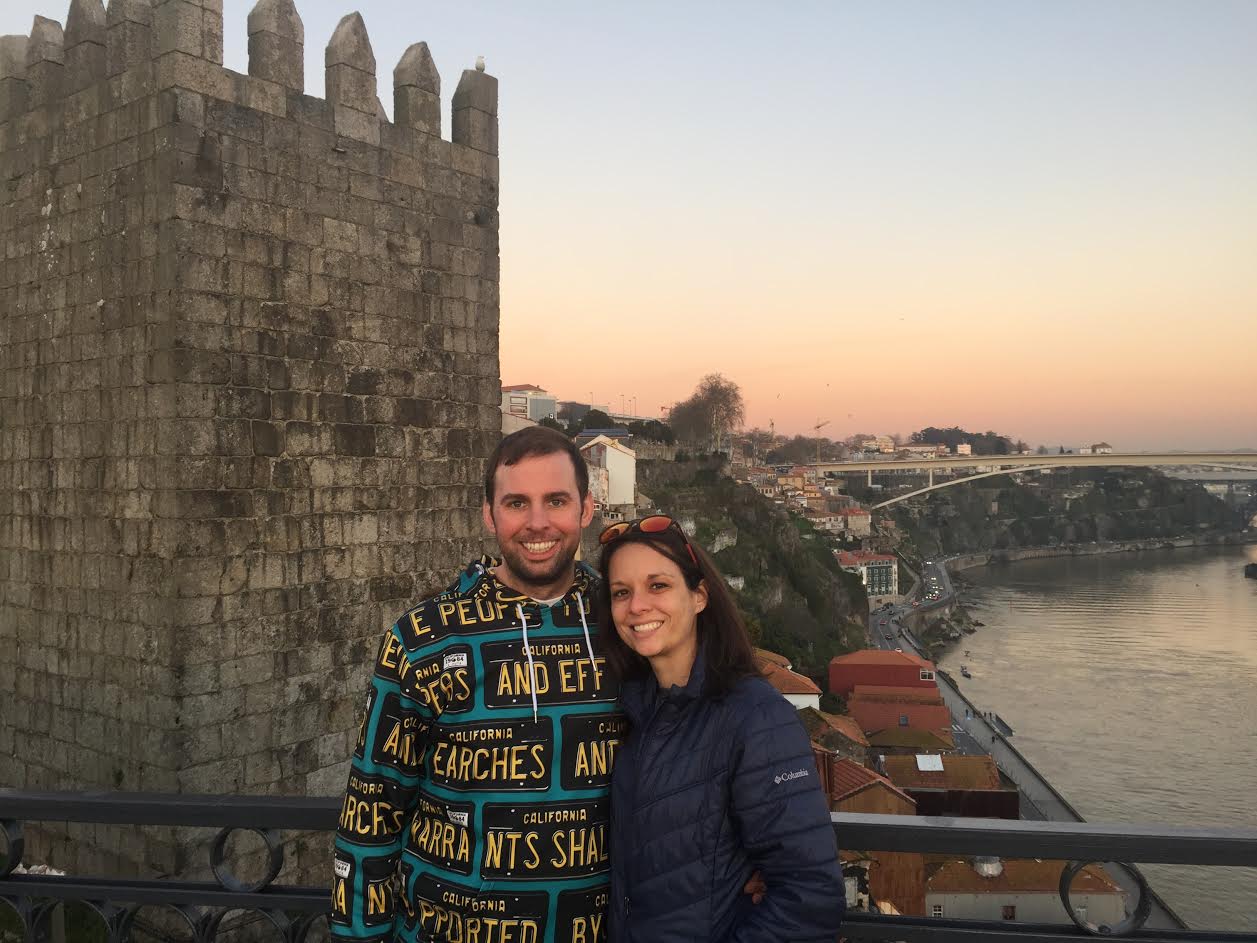
As far as cons go, both of us are social people, so not being surrounded by friendly coworkers all day is a bit of a negative. We had become really good friends with some of our former coworkers, so reduced socializing has definitely been difficult for us. We arrived in Croatia just days before the country closed its borders to foreigners and then shut down essential businesses due to the pandemic, so we haven’t had the opportunity to meet locals or other expats here. We’ve been doing regular happy hour video chats with friends and family, so that’s filled the void a little.
The lack of job security that comes with freelancing is also a con. Due to the current pandemic and the economic upheaval it’s caused, Tara’s work has been drastically reduced. Her assignment load has fluctuated over the years, so we already knew how volatile this line of work could be. It’s something we’ve prepared for, and anyone thinking of becoming a digital nomad should do the same. Creating a safety net for yourself is not optional. We wrote a lot about budgeting and saving for long-term travel in a book that we self-published a few years ago called Create Your Escape: A Practical Guide for Planning Long-Term Travel (more at http://createyourescape.today/).
Laptop living gives you the freedom to travel and choose your place to live. Where are the global hot spots currently for digital nomads?
If you put the pandemic aside, our plan for this remote work lifestyle was not necessarily to travel to cities that are set up perfectly for digital nomads. When we set our minds to being location independent, we had a strong desire to live in cities we had visited before and fell in love with, like Zagreb.
From 2012-2013, we took a career break and traveled the world (blogging about it at https://twotravelaholics.com). Along the way, we noted which cities we could see ourselves living in and promised each other we’d return. So that’s what we started out doing, first in Portugal and now Croatia. Others that we’d like to return to include Amsterdam, Singapore, Bangkok, Ho Chi Minh City, Cape Town, and Vancouver. When the pandemic subsides and it becomes possible to travel freely again, we want to explore more of Eastern Europe (and Croatia, if we’ll have the opportunity for intercity travel before our tourist visa expires).
You chose Croatia and specifically Zagreb - why?
As mentioned, it’s one of the locations we fell in love with years ago. The people are friendly, there are many opportunities for outdoor activities, there are rich culture and historic sites, and you really can’t beat the food, beer and wine. We lived for the craft beer scene in the US, and while it’s different abroad, we haven’t had a Croatian beer that we didn’t like (we were introduced to Medvedgrad nearly a decade ago and still love its brews).
What are the most important things a destination should offer to be most compatible for the digital nomad lifestyle, apart from that all-important good WiFi?
The answer is going to change from person to person. We don’t want to put ourselves at risk, so safety and comfort are top priorities. After that, we gravitate toward larger cities. We love city life, being able to attend events, go to concerts, explore museums, and get lost in the winding streets of unfamiliar neighborhoods. Great cuisine and local beer and wine are important, too, of course.
We’ve been in coworking spaces in DC, but we haven’t had the opportunity to try them abroad yet. The concept certainly appeals to the digital nomad lifestyle. There’s the intermingling of businesses, work equipment, social interaction, and, of course, just the ability to work in an atmosphere where you can be productive that is outside of a café or where you are currently living.
What are the competitive advantages that Croatia has to attract more digital nomads?
Three things that make Croatia a very attractive destination for digital nomads are safety, affordability, and the fact that many locals speak English. We always want to learn as much of the local language as we can whenever we travel, but you’re only going to be so proficient even after a few months of trying your best.
One thing that destinations can supply that would attract digital nomads and make their transition easier is a centralized website that houses relevant resources like apartment rentals, coworking space information, an events calendar, and instructions for a visa extension. All this information is scattered across the web—some sites in the local language and others with an English option—so the more hurdles you introduce, the more likely you are to lose potential visitors. Digital nomads are going to be spending a lot of time and money in your city—not to mention posting about it on social media—so making an investment in attracting them should pay off pretty quickly.
Connect with Tara and Mike! They’d love to chat with other TCN readers (https://www.linkedin.com/in/mikeshubbuck/ and https://www.linkedin.com/in/tarashubbuck/).
To learn more about Croatia for the digital nomad, check out the Total Croatia Digital Nomad guide.
Are you a digital nomad in Croatia who would like to be featured in this series? Please contact us on This email address is being protected from spambots. You need JavaScript enabled to view it. Subject Nomad
Creative Young Croatian Returnees: Uniting Artists & Business to 'Fill the Void' with Culture
February 21, 2020 - Winter life on the Dalmatian coast is a fraction of its summer energy. But not everyone is hibernating, and indeed some are finding very creative ways to fill the void.
Last night, I entered a souvenir shop to find a performing artist was crouching inside a Coca Cola fridge. When not in a fridge in a closed shop on the usually empty-all-winter Zadarska Ulica, Mia Kevo is dancing. Of late, Mia runs choreographed and improvised dance programs for people with disabilities around Croatia. This is one of many local and international artists - including photographers, filmmakers, urbanism researchers, who are part of the program for Culture Hub Croatia’s (CHC) PRAZNINE 2020 - an international artist program, loosely translating to VOIDS 2020. The program makes use of spaces which sit empty in winter due to unsustainable tourism practices - and is sign youth who are gaining expertise outside, are taking steps to change things in their hometowns - and in general, being supported by local businesses who see the need to re-energise coastal cities.
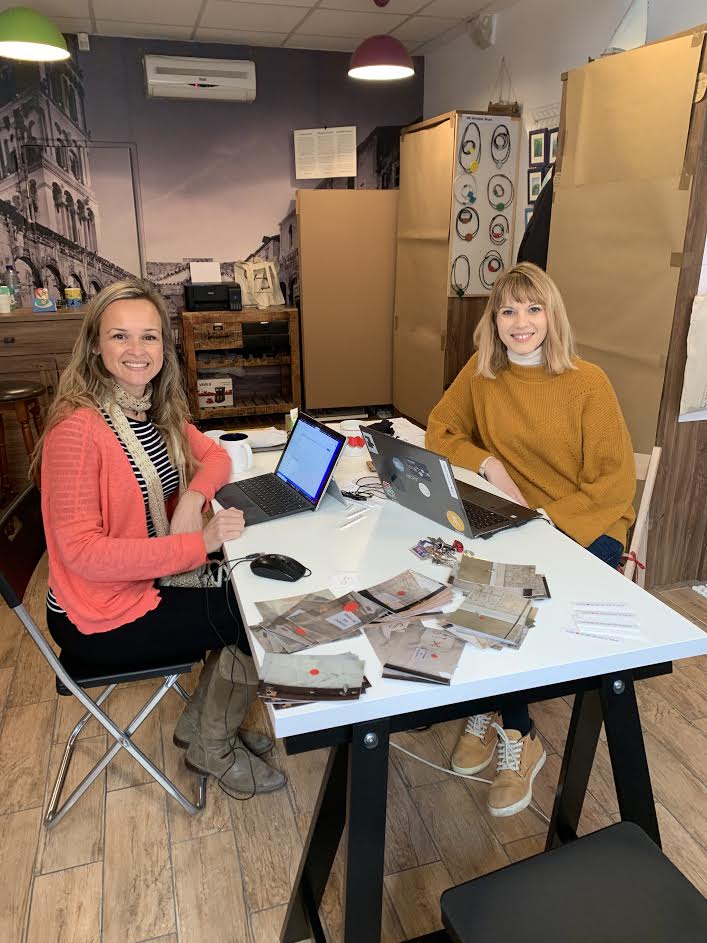
I’m writing this sitting in a pop up coworking space on Bosanska 4 in Split with one of the CHC founders, Marina Batinic, originally from Split and based between her hometown and Brussels. In the summer, this pop up cowork space functions as a souvenir shop - across the Game of Thrones Museum. The owner, Sanja, opened her doors and supports the space for artists initiative. Like so many, hers is a business reliant upon crowds - who disappear by around 1 November. I’m surrounded by handmade items from Dalmatia - from jewelry, paintings, sculptures and behind a brown box a sign for ‘magical bottles’. I’ll have to come back in the Summer to peruse the items for sale. These are the kind of sustainably-minded thinking businesses to support. (Looking out the window, I note even the GoT museum is boarded up). Marina is part of the culture hub trio, also included Jasmina Šarić and Kristina Tešija - all who are making a commitment to bringing international, cultural initiatives to their hometown, operating based on citizen support.
Sitting here with Marina, we discuss the changes we’d like to see and the challenges each of us has encountered - from local mindset, to tiring after swimming against a wave bigger than just a few people. Personally, being a champion for Remote Working and digital nomads (for which this country is an ideal destination) conversations like this are common - if only with a small handful of those ‘taking things into their own hands’. Sometimes, it’s like an inner tennis match going on, when you think about the number of people leaving - and yet, the number interested in coming. So why aren’t these people coming back?
Infrastructure.
A lack of faith in a system they left.
Easier (perhaps) living on greener pastures. But is it, really?
In the last month alone, I have a renewed optimism, from reading and speaking to members of the upcoming Day One tourism conference, and people - with established careers outside of Croatia, choosing Croatia or coming back - coming back due to the need for role models and mentors. In the words of Mate, one such accomplished gentleman among them, “if I don’t who will?” Thank you, Mate. Are there more like you?
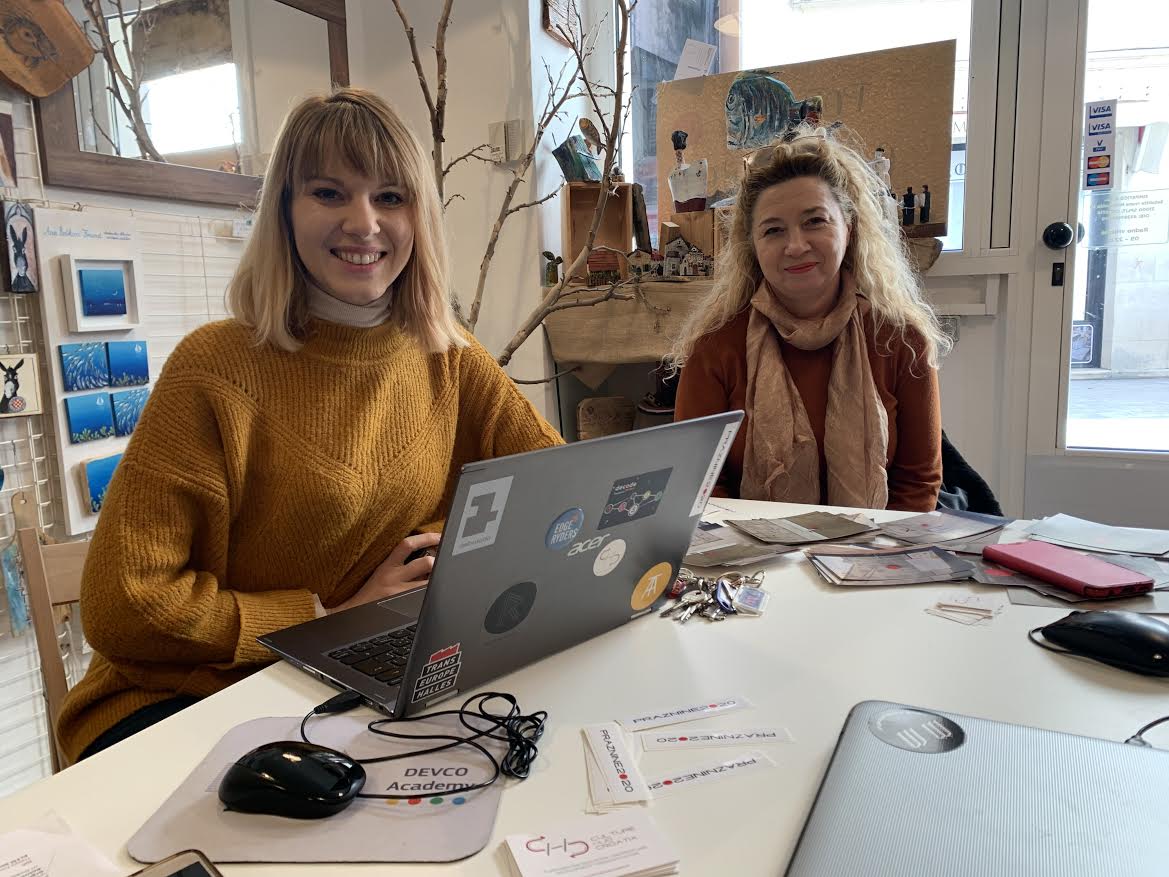
To return to the program, which does more than show this is an ideal, if under-utilised place for activity in the off-season, Marina shared more about the motivation and thinking behind PRAZNINE 2020.
“We invited artists from the region because the aim was to bring their artistic production more closer to the people. We’re not used to seeing contemporary art production at all and we don’t really collaborate in the region. We wanted to use arts to facilitate this dialogue and understanding. We have artists from North Macedonia, Albania, Kosovo and Bosnia. We want to meet these people and understand their work.
This is why we chose to have ‘open studios’ - even people who don’t understand contemporary art - to make people interact.
These Balkan countries need more dialogue. We wanted to use art as a means [for this].”
CHC are part of a wider international network, and now bringing their international connections to their hometown.
“We didn't want to limit the program only to the arts and open studios but we opened our calendar to the local community and other civil society organisations who were able to make their proposals for events and organize them in one of these spaces. In this way we allow everyone to shape their own city and gain back the ownership over it.”
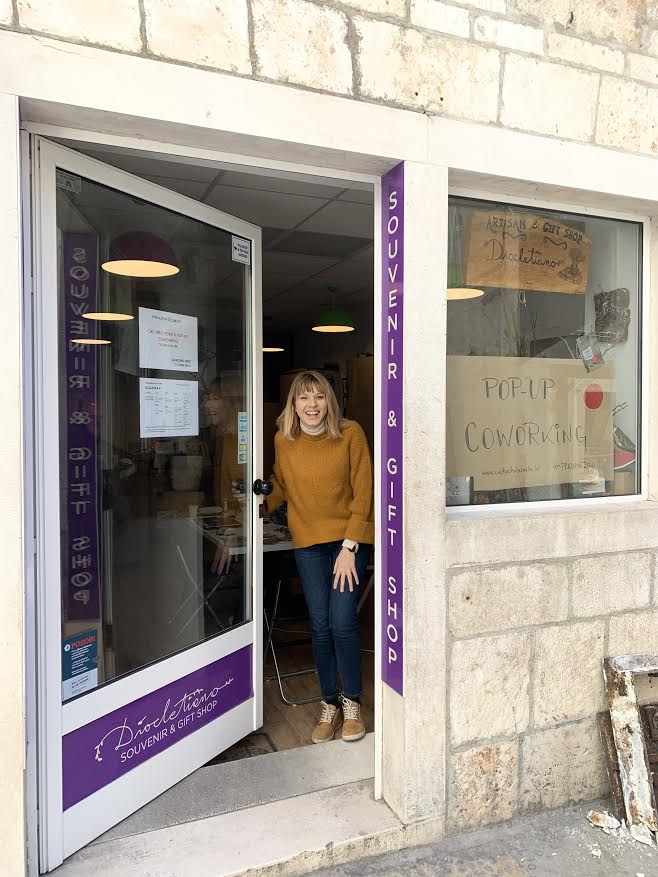
Sitting here, our joint guesstimate 60 to 70 per cent of the Split palace and the surrounding area is empty over winter. In setting up for their event, 35 promotional red dot stickers were printed - to be placed on empty “boarded up” businesses. They were used up in a matter of minutes.
For the finalé event, representatives from the European Creative Hubs Network (EHCN), Luka Piskoric from Poligon Ljubljana and Istanbul’s Atölye’s Atılım Şahin are coming. It is a great opportunity to see what is happening with Creative Hubs in the region on a wider scale.
--
WORTH RETURNING? IF ONLY THE “VOID” SEASON
In an era which is increasingly enabling and empowering remote work and digital nomadism - why isn’t the mini-Croatia in Dublin and the like thinking about basing here? If only during the “off-season”. It sure is sunnier. And with making use of empty spaces - all CHC had to do was knock on the door and ask (how novel). CHC prove it is possible.
Initiatives like these - a pilot project in the eyes of CHC, but hopefully an enduring one - are bringing life back. It no longer needs to be a smoky cafe and people futilely talking about politics when (if) you return. It’s connection with a cultured hit.
It seems there could be. As we sat at Marulus Bar last night - and had this unique stone-walled bar (with smoke free zone) entirely to ourselves - Marina shared stories of the large number of people reaching out to CHC from outside of Split (its official base) and applauding them for their efforts. I had the pleasure of doing it in person. In one of countless cities ripe for cultural and digital nomad disruption.
PRAZNINE 2020 is filling the void you may be experiencing this Winter, and runs until 7th March 2020. To see the full calendar and full event descriptions, and bios of the artists (in English and Croatian, visit the page on Culture Hub Croatia’s website or the Facebook event page.
Want to know more about being a digital nomad in Croatia? Follow the dedicated TCN section.
Digital Estonia Leads, Serbian Tax Breaks: Meanwhile, in Croatia...
October 9, 2019 - As Estonia leads the digital revolution in Europe, Serbia announces tax breaks to entice digital nomads. Meanwhile in Croatia...
There are so many things I love about living in Croatia - the people, the nature, the climate, the food, the wine, the safety, the cheap pints.
And the total absurdity. I genuinely couldn't live anywhere else.
Here we are, fairly well into the 21st century in the rest of Europe, or at least most countries are.
Somewhere up there in northern Europe, a tiny former Soviet republic with no obvious natural resources to turn it into an economic powerhouse, little Estonia leads the way in its digital revolution. Now offering public administration efficiencies we can only dream of in Croatia, those efficiencies have also brought savings equivalent to 2% of GDP. Learn more in Lessons from Estonia: Farewell Uhljebistan, Welcome to the Future?
Could it happen in Croatia? At least a little bit?
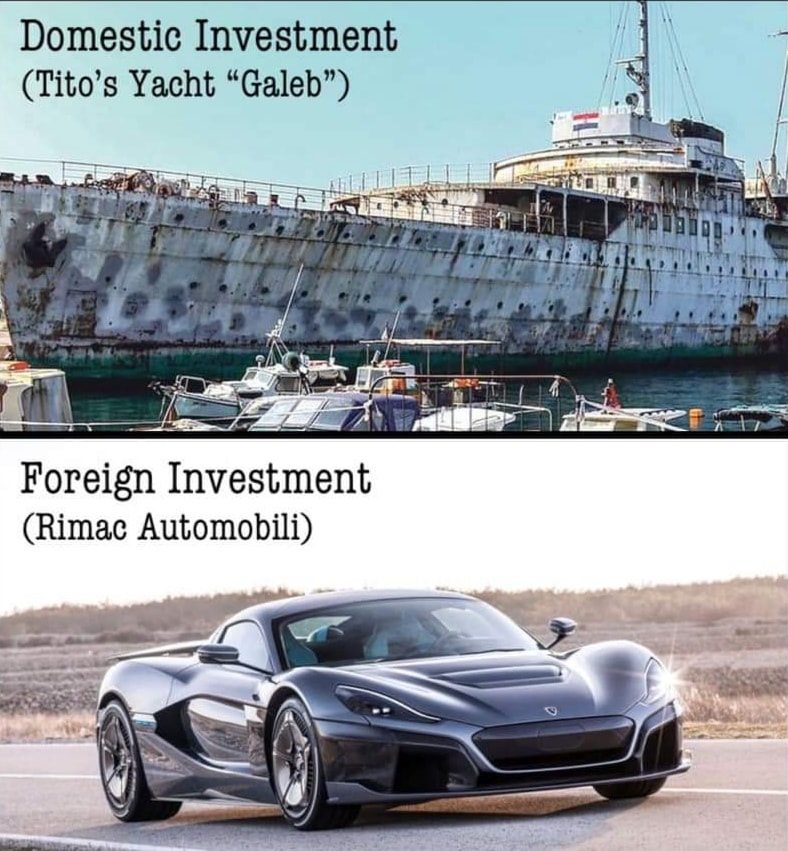
I had to laugh today when I saw this on a friend's Facebook timeline, as it just about sums it up. Rimac the superstar, a Croatian company which is taking the world by storm, attracting prestigious foreign investment form the likes of Porsche and Hyundai. Rimac Automobili, one small company started by a 23-year-old which represents the entire car industry of Croatia and which has the world's top names from abroad queueing up to invest. And the Croatian government, propping up things from the past - shipyards, a national airline (here is what happened in Budapest when Malev went bust 7 years ago) and a rusting boat of a former president from a former era.
But if they do insist on such things, could we at least be a little sensible looking to the future in working to attract investment by making laws and taxation competitive?
One area where Croatia has HUGE potential to attract an entirely new industry which could bring more visitors than tourism does currently (and for longer, not only in peak season, and not only on the coast) is the digital nomad revolution. To be clear - as there is some confusion - when talking about digital nomads, I am not referring just to bloggers and influencers (although they are a form of nomad), but people who work remotely online, and who can therefore be anywhere.
People like the Russian/Ukranian couple resident in Munich, but living all over Europe for 10 months of the year. From April to June inclusive, they were enjoying life in Jelsa (and they will return for three months next year). Their daily routine: swim, coffee on the square (Jelsa), work online until lunch (Munich), lunch in a restaurant in Jelsa, back to work online in Munich. After work, another swim and an evening's entertainment in Jelsa.
Working and earning in Munich, spending in Jelsa. 90 days a year.
Not in peak season.
Learn more about How Croatia is Becoming Increasingly Attractive for the Digital Nomad Lifestyle.
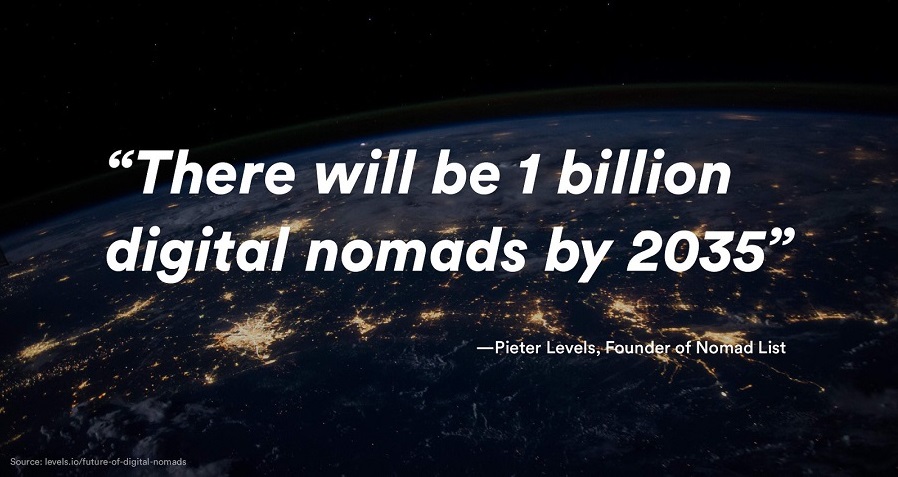
Blessed with its climate, lifestyle, location, safeness and a host of other things, Croatia really doesn't have to work too hard to make it a European hot spot for the remote worker of the future. Imagine that nomad couple in Jelsa multiplied by 20 million over the year and all over the country. Just 2% of that projected one billion. Is there anywhere better than Croatia potentially for a digital nomad lifestyle?
A little digitalisation, some third-country visa issues, making the residential permit nightmare simpler, that kind of thing. Really not difficult. Oh, and perhaps a tax break or two, some incentives to give nomads additional reasons to come and spend time and money in Croatia.
Something like Serbia announced today, for example:
A new demographic which Serbia is now looking to attract is digital nomads. The Prime Minister announced that starting in 2020 the Serbian government will be rolling out a new tax incentive. This first iteration will offer digital nomads a zero tax rate for income earned while working in Serbia (for a set amount of time – 90 days).
This announcement is quite exciting as part of a larger trend of governments beginning to acknowledge the importance of creating policies and incentive for remote workers and digital nomads.
Read more on Serbia's progressive approach to attracting the next generation of traveller.
Meanwhile in Croatia...
Despite the best efforts of the powers that be, Croatia is still a fabulous (and increasingly popular) digital nomad destination - check out the Total Croatia digital nomad guide here. But it could easily be SOOOO much better and a market leader in Europe.
But then I would not be living in Absurdistan and I wouldn't like it...
If you are a digital nomad in Croatia and would like to be featured, contact us on This email address is being protected from spambots. You need JavaScript enabled to view it.
Digital Nomad Life in Croatia: Nicole, from New York City to Split
As the number of digital nomads rises globally, some are choosing to spend some of their time in Croatia. A new TCN series meeting international digital nomads calling Croatia their temporary home. Meet Nicole Pruess from New York.
As recently featured on TCN, the world is projected to have a billion digital nomads by 2035, people from all over the world doing all manner of jobs and business with one thing in common - a flexible, mobile workplace connected to the Internet. If even a fracture of that number becomes a reality, the economic opportunity for countries which can attract these wealth-generating individuals has the potential to dwarf Croatia's current tourism revenues. And there are few countries better placed than Croatia to take advantage. Safe, beautiful, great gourmet scene, top tourist destination, English widely spoken, well connected to other destinations, and a superb lifestyle.
In order to look at the issue in more detail, we have decided to look at some of the digital nomads who have Croatia in their lifestyle plan, and to find out why Croatia, what Croatia offers, and what are the things that countries should be looking out for to take advantage of this economic opportunity. I am very grateful to Tanja Polegubic from Split's waterfront co-working space, Saltwater in Split (see location below) for her help in connecting me to various digital nomads using her space.
Our second digital nomad in Croatia is Nicole Pruess, who enjoyed Dalmatian sunshine after arriving from New York.

You are one of a growing number of digital nomads. Tell us briefly who you are and what you do.
I'm American by birth, European (British) by choice. I have worked in digital advertising for 20+ years and currently work for a French ad-tech company. I'm fortunate that, while I'm a full-time employee, I'm able to work remotely much of the time.
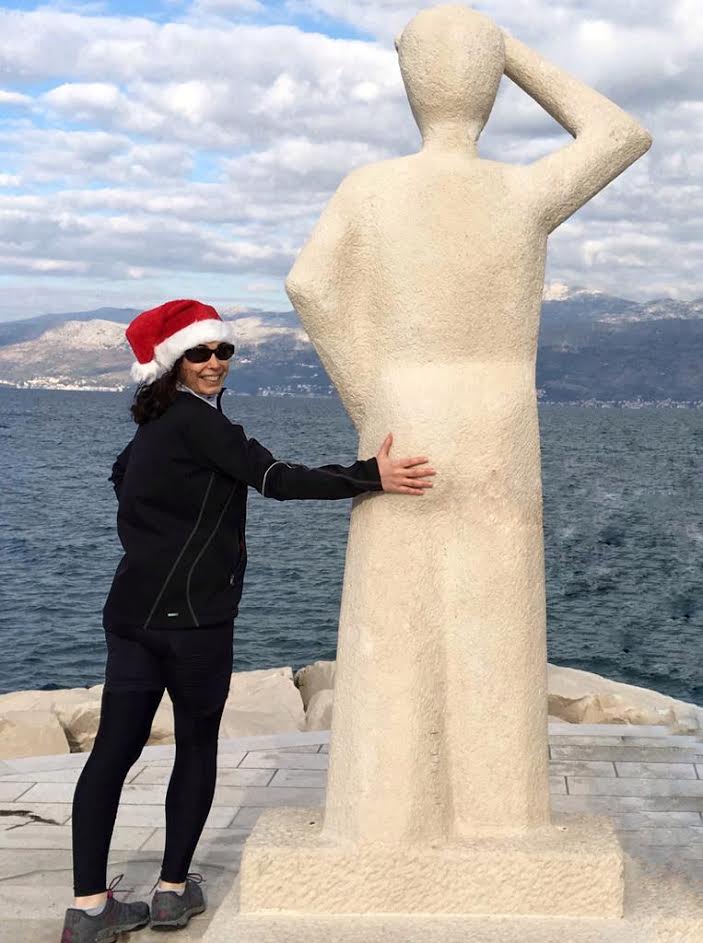
Working from your laptop rather than in an office seems like the dream lifestyle. What are the main pros and cons?
I have the best of both worlds as I often spend time in our offices around the world and get the interaction and camaraderie that comes with office work. Mixing that with remote working is great, where I can set my own daily priorities and keep a schedule that suits my preferred lifestyle. It can be hard to stay disciplined and not get distracted when remote working, but the payoff is worth it.
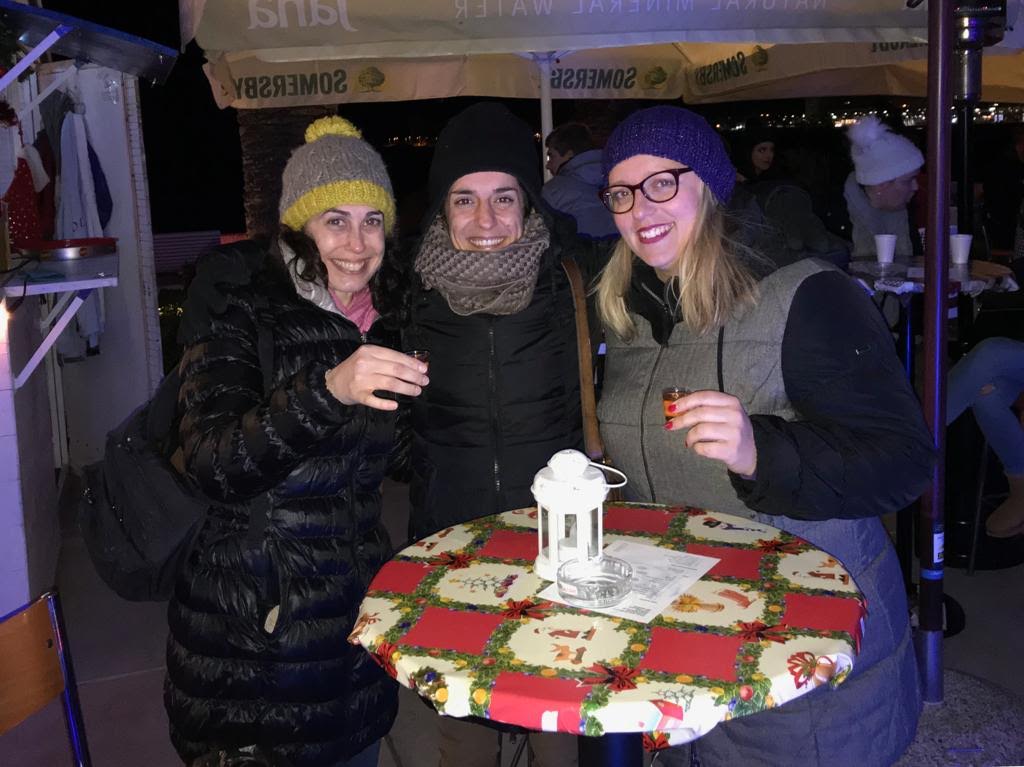
Laptop living gives you the freedom to travel and choose your place to live. Where are the global hot spots currently for digital nomads?
I'm too focused on Split to know!
You chose Croatia and specifically Split - why?
I fell in love with Split on my first visit to Croatia four years ago. I found myself wanting to go back again and again for the great cycling and "pomalo" vibe. Once I had more flexibility to work remotely, spending more time in Split was a top priority. By fate, I found Saltwater and was hooked! Having co-working spaces like Saltwater, that build community and promote connection, make Split a great place to be a part-time or full-time digital nomad. Split ex-pats also have an active digital presence that supports those who are looking to get deeper connected to the city and surrounds.
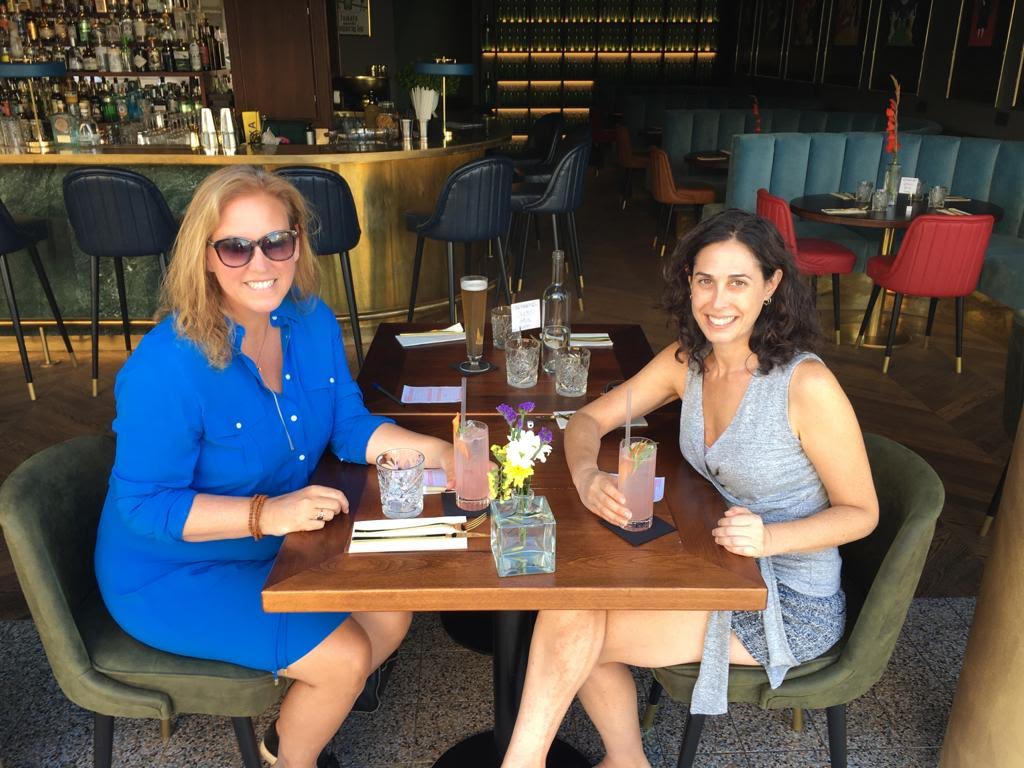
What are the most important things a destination should offer to be most compatible for the digital nomad lifestyle, apart from that all-important good WiFi?
It very much depends on your specific job, but having a community of people open to supporting newcomers is very important. Learning from the experience of those who have already found the best coffee, know where to find products you miss from home, can point you to the best secret beaches, etc. is invaluable.
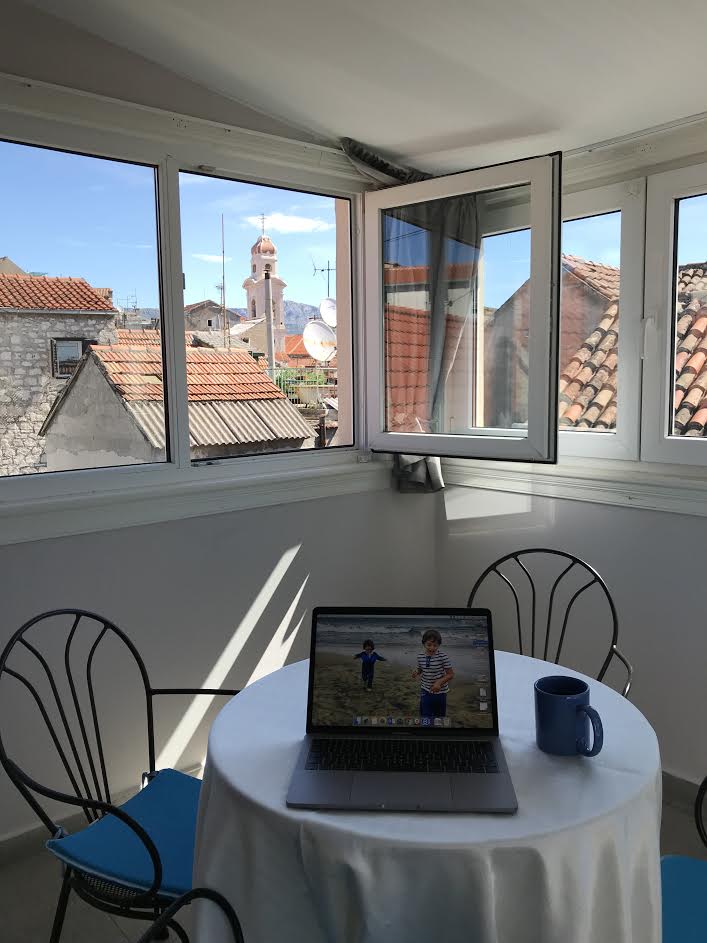
What are the competitive advantages that Croatia has to attract more digital nomads?
Croatia is an especially great option for people in Europe with the easy access to most major cities, while also feeling worlds apart. On a more global scale, there's an active and growing tech scene with lots of opportunity for digital nomads to connect and explore. You feel like your next big idea could come unexpectedly from a having a chat over a beer, or a day at the beach!
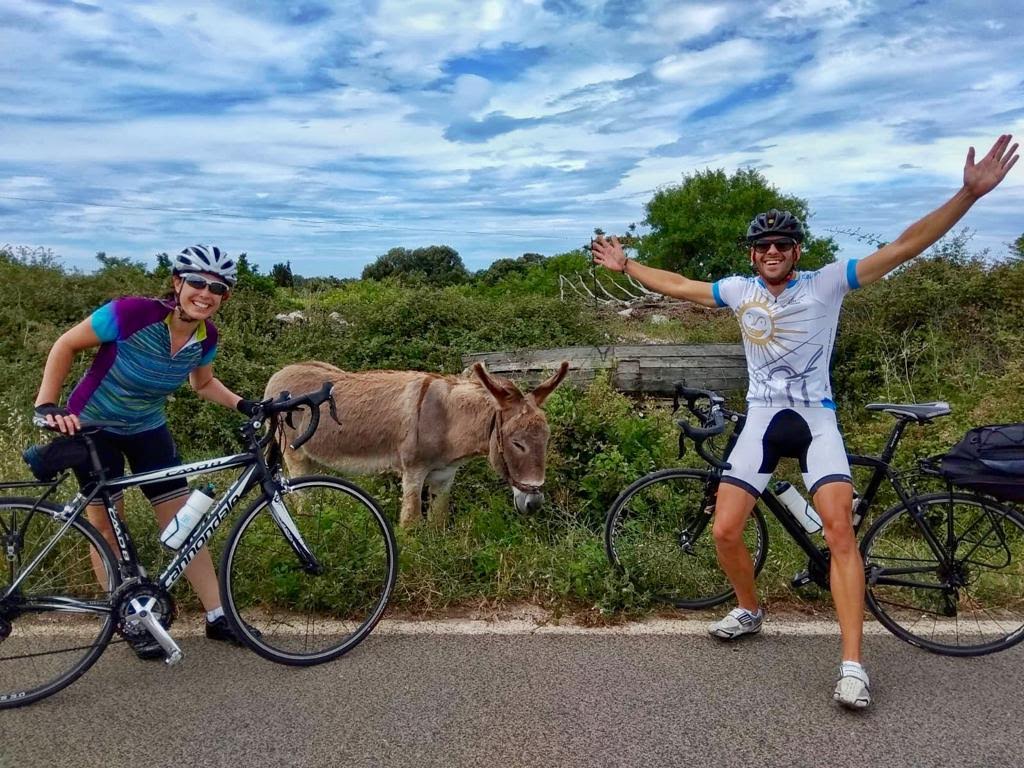
To learn more about Croatia for the digital nomad, check out the Total Croatia Digital Nomad guide.
Are you a digital nomad in Croatia who would like to be featured in this series? Please contact us on This email address is being protected from spambots. You need JavaScript enabled to view it.

